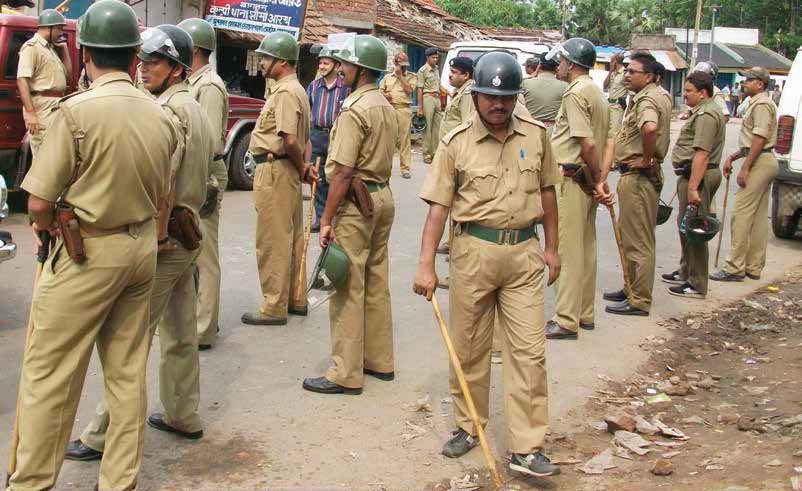This article is written by Shobhna Aggarwal, from Banasthali Vidyapith. This article aims to put forth the beneficial provisions for maintenance of children and parents which are provided under various provisions under various acts.
Table of Contents
Introduction
Child support is referred to as a parent’s obligation to contribute to the financial maintenance of his or her child. The child support concept is initiated when the parents of the child decide to get separated or to get divorced, so when both the parties start living separately then the child that was born from the wedlock or the relationship does not start suffering the most, hence a need was felt to give the child support by the parents.
Child support rights for the parents who never got married
Child custody is a bit of a complex matter but it makes it more complicated when the parents are not even married. When the child is born out of wedlock the custody automatically goes to the mother of the child whereas the father is only left with the visitor’s right. For the better understanding of the rights of unmarried parents, we can divide them separately like, the mother is the sole custodian of the child, she has the legal and physical right for the matters regarding residence, schooling, sports, church, health needs, travels, vacations, and the child care. Whereas a father holds the right of visiting his child or we can say that the father shares the child custody. “The child support system for the parents who have never married stated that both the parents should pay for the child support according to their financial situations and if one is not able to pay then they can seek support re-evaluate based on the change in circumstances”.
Decision by judges in child support
Every child and the family in which he or she has been born have different circumstances and situations about which child support can be measured equally for every child, hence judges have their approach in deciding child support in every case, but the state has made some key points which must be overlooked while fixing child support. “Some of them pertain to be like any child support from the previous marriage of the parent, or the parent has to pay child support to his or her previous marriage, whether any parent is responsible towards any child from a previous marriage, out of both the parents is looking for the health insurances and the cost for the child, or daycare cost or whether either parent is required to pay union dues or has other amounts deducted from paychecks, ages of the children, whether either parent receives irregular income such as bonuses or incentive pay, or expects severance pay or other lump-sum payments, and, whether either parent lives with a new partner or spouse who contributes to household expenses”.
Key child support rules
Child support or custody of the child is the most delicate issue after the divorce or separation in wedlock. In India, the matter if the custody is some deal between the parties or the parents themselves but if there is an argument regarding the same, it shall be decided by the family court. The custody of the child is not an automated result of the divorce one must seek the judiciary to have the custody of the child, which also differs from religion to religion. The court has the sole power to decide to grant sole or joint custody as dealing with the situation. In the case of young children, the court presumes to give custody to the mother as young ones need to be taken care of and handled with affection by the mother herself, but the preferences of the child are also taken into consideration when the child is above the age of 9 years.
Implications of not paying for child support
When the non-custodial parents fail to pay the child support as agreed upon the schedule then the custodial parent may seek to enforce the child support against the non-custodial parent. The non-payment of child support can lead to following repercussions like “ liens and seizures: lien or seizing of any personal property can be made in the failure of the child support payment against the non-custodial parent and that lien or seizing didn’t end until the payment of the whole child support. Suspension of licenses: The state can suspend the non-custodial parent’s driving, recreational, and professional licenses. Warrants: A civil or a criminal warrant can be issued against the non-paying parent. The parent can be found in contempt of the court order and fined, or if severe enough, a criminal warrant may be issued in their name. Credit Reporting: Child support is considered a high priority debt and as such may be reported to the credit agencies. Each month you fail to pay your financial obligation will be listed on your credit report.”
Reforms in the guardianship and custody laws in India
The law commission of India in its report no. 257 has recommended the necessary reforms to the guardianship and custody laws in India. The report was submitted to the union minister of law and justice. The report has suggested amendments in the laws related to child welfare in custody and guardianship. The concept of joint custody has also been provided with some lightning during this report. The Guardians and Wards Act as well as the Hindu Minority and Guardianship Act 1956, are recommended for the legislative amendments to pertain laws following the modern social justice consideration. The report includes changes regarding joint custody laws as child support, mediation processes, parenting plans, grandparent’s time, and extras. The draft removed the concept of a natural guardian, where only the father was recognized as a natural guardian, now both the parents have an equal role to play. The court has the power to adjudge the amounts to be paid as child support and it shall be continued till the child turns 18 but it can extend up to the age of 25 after looking towards the mental and physical condition of the child. Also, the child support shall be fixed after measuring the financial resources of the parents and the living style of the family. Chapter II A of The Hindu Minority and Guardianship Act, 1956 has been introduced which deals with the concept of custody, visitation rights, and child support.
Adoption of joint parenting system in India
The joint parenting system can be adopted in India because when the couples get separated or divorced it is the child who suffers the most. The child has to decide to choose between parents, due to which he also suffers from mental agony. In a plea filed by an NGO named Save Child India Foundation, the Supreme Court said that the directions should be issued for the welfare of the child so that he does not suffer when his parents get separated or divorced. Furthermore, the court said that the government of India must make some laws regarding the joint parenting system. It has become the need of the hour in the present scenario because the rate of the divorce or separation of couples is incredibly increasing. The plea made some relevant points like the right of the children should be protected because a child is entitled to the love of both of his parents. Breakdown of a marriage does not mean the ending of parenthood or parental responsibility. New laws should be established to deal with the emotional needs of a child whose parents are divorced or separated because the existing codified laws are inadequate like as Hindu Minority and Guardianship Act, the Guardians and Wards Act, and the Juvenile Justice Act. Dr. Manish Kansal, a Delhi based psychiatrist too said that joint parenting is good for the mental and physical health of a child. Separation of parents just because of their indifference does not affect their innocent child and make him suffer. The concept of joint parenting is beneficial for the child whose parents have been divorced or separated and the government must make some laws regarding the same.
Difference between Indian laws and the laws of other countries on child support
The nation constituting a total of 195 countries out of which only 15 countries accepted the agreement formed by the United States for enforcing child support. “There countries are Australia, the Czech Republic, Canada, El Salvador, Hungary, Finland, Ireland, Northern Ireland, the Netherlands, Poland, Norway, Portugal, The United Kingdom, the Slovak Republic, and Switzerland.” The child after the divorce faces the most trouble out of all the members in the family as many countries don’t have standing laws for the child support. “The child support model is currently issued by the family courts and both the laws of the individual state and the system that has been there for several years in the state. Different countries have different laws regarding child support as a stepchild or step-parents as well”. In Germany, they have the rule of splitting the parental resources equally over all the children whereas in Finland and Sweden, both parents have child-related expenses deducted from income. Denmark follows the same pattern as that of Germany whereas, the Netherlands follows Finland and Sweden in case of child support. In Canada they give more preference to the child born from the marriage or that relationship, they don’t include the new parent or stepchild in the concept rather stick to the actual parent from whom the child took birth. In the United Kingdom, they also don’t consider the new parent into the account and the paying parent’s resources are only included but both the step-child and actual child are being considered while paying the child support. Whereas in India, under Section 20 of the Hindu Adoption and Maintenance Act, 1956, which states maintenance to be paid by any Hindu during his lifetime to his or her legitimate or illegitimate child or aged or infirm parents. The child should be given maintenance until he attains his majority that is 18 years.
Issues and challenges
The most issues and challenges that are faced after the separation or the divorce process in the marriage is the caring of the child. The first and foremost question arrived after the separation or the divorce is the custody of the child, if both the parents applied for the joint custody then they can share the child support expenses as well the time to be shred or cared for the child both when there is the case of sole custody with the only visitation right to the other parent the issue regarding the time the expenses incurred like the one with whom the child is staying has more expenses to be made for the child as he is living with the sole custodian and at some point the visitor parent will have an issue for having less time to be shared with his/her blood. Or the next issue which can be arrived at is that if the person has custody of the child, remarries or builds a new relationship and the new partner brings his/her child then both the child may suffer in love, care, attention, or the support or maintenance. The most challenging problem occurs when there is a joint complex family of one parent who has many relationships then all the relations suffer due to the separation or the sole custody concept.
Advantages and disadvantages
The first advantage of providing child support is that the well being of the child which must not suffer in any case, so when the parents split or the early age mother who is not sufficient to up-bring her child due to unemployment or poverty will be able to give a better version of life to her child. The next advantage of giving the concept of child support is to reduce the infanticide rate as in many countries including India, the infants are being killed in the womb due to the reason of poverty or not able to hold the responsibility of the infants.
Now the disadvantages of child support, the granting of child support by the government brings a rapid increase in teenage pregnancy. As the government provides measures for the early age mothers therefore the teenager becomes more relax and reliable on the social grants and they don’t take responsibility to avoid sex or to have protected sex. The next disadvantage which is growing day by day is the sexually transmitted disease (STDs). And the last disadvantage of providing child support is the overpopulation in the country as government-provided this scheme to decrease the infanticide rate which converted into a high population or overpopulation rate.
Critical analysis
The whole situation indicates that the most affected person came to be in the scenario is the child only, Who lacks in the love, care, affection as provided by both the parents simultaneously. The parents too suffer in the situation as one of them has the physical right and others have only visitation rights. This whole process can bring down a child‘s morale and enthusiasm to do the best in their life.
Important case laws on parental obligation for child support
Bakulabai v. Gangaram (1988) 1 SCC 537
The petitioner Bakulbai, alleged to be the wife of Gangaram, stated that they both were married and gave birth into the wedlock to a son named Maroti, but Gangaram denied the statements as alleged by the appellants, but the court held that though bigamous marriage is illegal under section 11 of the Hindu marriage act, 1955 but when both the parties are living together as husband and wife for several years and give birth to the child, that child attain a legitimate status under section 16 of the same act and hence the bigamous child is entitled to the maintenance under section 125 of Cr.PC.
Jagdish Jugtawat v. Manju Lata (2002) 5 SCC 422
In this case, the parents got married and gave birth to two children but after some time the circumstances changed between the wedlock and they got separated. Out of two children, one was a major girl, and filed a petition to get maintenance from her parents. The court here held that though sec 125 of Cr.P.C. doesn’t fix any liability over the parents for the child above 18 but reading section 125 of Cr.P.C. with sec 20 (3) of the Hindu adoption and maintenance act, 1956 the girl being major and unmarried is entitled to have maintenance from her parents.
Padmja Sharma v. Ratan Lal Sharma (2004) SCC 266
In this case, it was held that a Hindu earning mother is also obliged to maintain children. It was held that a Hindu divorcee father and a Hindu divorcee earning mother are obliged to contribute for maintenance of their children under the Hindu Adoption and Maintenance Act, 1956. Only the father is not exclusively responsible to maintain children regardless of their mother being capable of earning.
Noor Sabha Khatoon v. Mohd. Quasim (1997) 6 SCC 233
In this case, the court held that Muslim children are entitled to maintenance under CrPC. It was held that the benefit under Section 125 CrPC is available to all children irrespective of religion. Under Muslim Women (Protection of rights on Divorce) Act, 1986 the mother has right to claim maintenance for children for two years from their date of birth and it is distinct and independent of the right to maintenance under CrPC to minor children who are unable to maintain themselves.
Conclusion
Since both the parents have equal rights over the child as they both contribute for the child, therefore no one must suffer in the case of separation or the divorce. In the child support system, both the parents shall apply for joint custody as they both have to be the contributor in the financial and economic support, but in the case of a young child, the mother has the first right over the child being the birth giver.
References
- http://www.legalserviceindia.com/legal/article-1486-all-about-child-support-and-spousal-support.html
- https://www.scconline.com/blog/post/2019/01/10/maintenance-children-and-parents/
- https://indiankanoon.org/doc/116184888/
- https://www.vidhikarya.com/legal-blog/fathers-custody-rights-in-india
- https://vakilsearch.com/advice/child-custody-rights-of-indian-parents/
LawSikho has created a telegram group for exchanging legal knowledge, referrals and various opportunities. You can click on this link and join:
 Serato DJ Crack 2025Serato DJ PRO Crack
Serato DJ Crack 2025Serato DJ PRO Crack











 Allow notifications
Allow notifications


